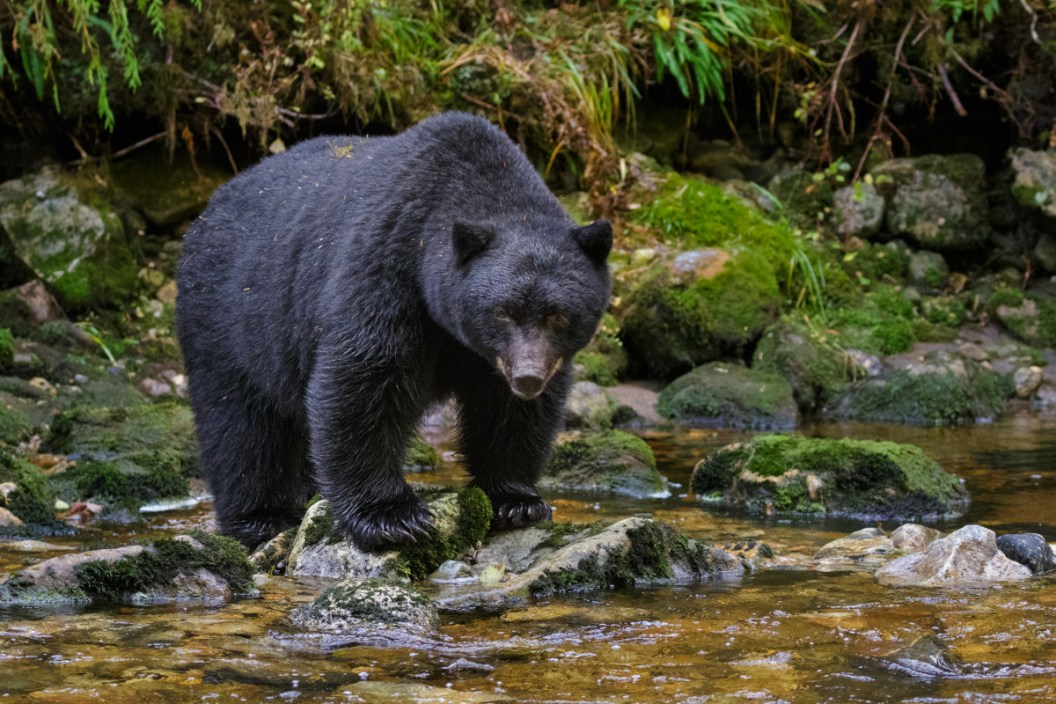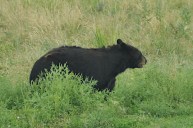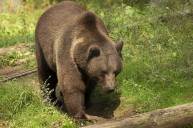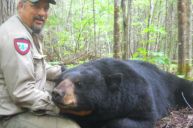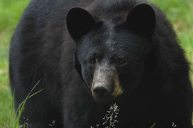Washington again votes down a spring bear season.
There will not be a spring bear season in Washington in 2022 after the Washington Fish and Wildlife Commission voted 5-4 against the season on March 19 after nearly four hours of public comment on the matter. The decision comes after months of deadlock within the commission on the issue. King 5 News reports how votes for a season allowing 664 permits ended in a 4-4 tie back in November.
That tied vote effectively killed the hunt until a petition put the issue back on the table for the commission. The Washington Department of Fish and Wildlife had estimated the 664 permits would likely have resulted in only 145 bears harvested. Washington State is home to an estimated 20,000 or more bruins.
Most of the arguments for or against the hunt are what you might expect. Those against the hunt say it is cruel and that targeting the bears shortly after they've left hibernation is inhumane. Those for the hunt argue the population needs to be kept in check and too many bears pose a risk to other wildlife and domestic animals.
The season in Washington had traditionally started in the middle of April, but the WDFW modified their approach a little when presented back to the commission. Instead, they proposed a season that started May 1 and ran until June 15. They also proposed prohibiting the harvest of sows with cubs. It seems these changes were in response to anti-hunt activists concerns about cubs being abandoned before they can survive by themselves in the wild.
It seems one of the reasons for the conflict on the vote is because not all the commissioners can agree on the data for Washington's bear population. The Spokesman-Review reports commissioner Tim Ragen wanted an extensive level of data on the state's bear populations before he would approve a season. He claims such data doesn't exist.
More specifically, he wants data on things like mortality rates for problematic bears destroyed by humans, or those killed by traffic. Ragen also wants to see data on growth rates, abundances, and population trends.
DFW Game Division Manager Anis Aoude argued such a deep look at bear populations is not needed.
"It is a standard that is probably unnecessary for the species we manage," Aoude told the Spokesman-Review. "If you look across the U.S. at hunted species, people are not using this type of data to manage the species because of their status and their reproductive rates."
DFW Director of Wildlife Eric Gardner noted the concerns about abandoned cubs had some merit to King 5 News. However, he also noted there is some additional value to the data the state's biologists collect from harvested bears each spring.
"It may not tell us how many there are, but it can tell us a little bit about catch efforts, which maybe gives us an indicator of if the population is increasing or stable or decreasing," Gardner told the news station. "Over time, those become very meaningful datasets."
After the commission's decision, anti-hunt advocates celebrated the news while pro-hunting organizations released statements celebrating it. It seems likely we have not heard the last of this debate in Washington State.
For more outdoor content from Travis Smola, be sure to follow him on Twitter and Instagram For original videos, check out his Geocaching and Outdoors with Travis YouTube channels.
READ MORE: BEAR BAITING STRATEGIES THAT WILL HELP YOU HARVEST A GIANT
